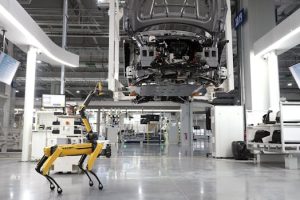Bioengineered Fuel Systems: Organic Energy Solutions
Are you tired of relying on fossil fuels for energy? Are you looking for an alternative, sustainable solution that is both environmentally friendly and cost-effective? If so, you may be interested in learning about the emerging technology of bioengineered fuel systems. In this article, we will delve into the world of organic energy solutions and explore the potential of bioengineered fuel systems in revolutionizing our energy consumption.
What are Bioengineered Fuel Systems?
Bioengineered fuel systems are a new form of renewable energy technology that harnesses the power of natural organic materials to produce energy. They differ from traditional biofuels, such as ethanol and biodiesel, which are derived from crops and food sources. Instead, bioengineered fuel systems use non-food sources, such as algae, plant waste, and even carbon dioxide, to produce clean and sustainable energy.
The Benefits of Bioengineered Fuel Systems
Environmentally Friendly
One of the main advantages of bioengineered fuel systems is their potential to reduce our carbon footprint. Traditional fossil fuels emit harmful greenhouse gases, contributing to climate change and pollution. In contrast, bioengineered fuels emit significantly lower levels of greenhouse gases, making them a more environmentally friendly alternative.
Sustainable and Renewable
Unlike non-renewable fossil fuels, which will eventually run out, bioengineered fuels are sustainable and renewable. They rely on organic materials that can be constantly replenished, making them a long-term solution for our energy needs. Additionally, bioengineered fuel systems require little land and water resources, making them a more efficient and sustainable option compared to other renewable energy sources, such as solar and wind power.
Economical
In addition to being more sustainable, bioengineered fuel systems also have the potential to be more cost-effective than traditional fossil fuels. As technology advances and production processes become more efficient, the cost of producing biofuels is decreasing. This makes them a competitive alternative to traditional energy sources, reducing our dependence on foreign oil and potentially lowering energy prices for consumers.
The Future of Bioengineered Fuel Systems
While bioengineered fuel systems are still in the early stages of development, the potential for this technology is immense. Researchers and scientists are constantly exploring new ways to improve the efficiency and effectiveness of these systems. From using genetically modified microorganisms to increasing the scale of production, there are many possibilities for the future of bioengineered fuel systems.
Challenges and Concerns
Competition with Food Supply
One of the main concerns surrounding bioengineered fuel systems is the potential competition with food supply. The use of crops for biofuels may divert resources away from food production, potentially leading to food shortages and higher prices for consumers. This issue can be addressed by focusing on non-food sources, such as algae and waste materials, for biofuel production.
Infrastructure and Distribution
The adoption of bioengineered fuel systems may also face challenges concerning infrastructure and distribution. As these systems are still in the early stages of development, there is a lack of infrastructure to support their production and distribution on a large scale. However, as technology advances and the demand for biofuels increases, we can expect to see the development of better transportation and distribution systems.
Conclusion
The potential of bioengineered fuel systems in revolutionizing our energy consumption is promising. They offer a sustainable, renewable, and environmentally friendly alternative to traditional fossil fuels, with the potential to reduce our carbon footprint and lower energy costs. While there are still challenges and concerns to be addressed, the future of bioengineered fuel systems is bright, making them a viable option for a greener and more sustainable future.







